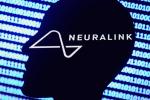Neuralink founder Elon Musk said the first human patient to receive one of his company's cybernetic implants appears to have made a full recovery.
In a Spaces event Monday on his social media platform, X, the billionaire said the patient is able to control a computer mouse with their thoughts.
"Progress is good, and the patient seems to have made a full recovery, with no ill effects that we are aware of. Patient is able to move a mouse around the screen by just thinking," Musk said.
Musk said Neuralink was now trying to get as many button clicks as possible from the patient.
ELON'S EXODUS: TRACKING MUSK'S BUSINESS INCORPORATION STATE CHANGES
Neuralink did not immediately respond to a request for comment from FOX Business.
In September, Neuralink announced it was holding open recruitment for the first-in-human clinical trial of its wireless brain-computer interface (BCI).
In the announcement, Neuralink said the Precise Robotically Implanted Brain-Computer Interface (PRIME) study would evaluate the safety of the company’s implant (N1) and surgical robot (R1) while assessing whether the device can help paralyzed people control external devices with their thoughts.
Musk reported last month that the first patient to participate in Neuralink's clinical trial received the company's implant on Jan. 28.
TESLA CYBERTRUCK OWNERS CLAIM $80K, STAINLESS STEEL VEHICLES DEVELOPED ‘CORROSION,’ ‘RUST’: REPORTS
"Initial results show promising neuron spike detection," Musk posted on X at the time.
The tech mogul also posted that the first version of Neuralink is called Telepathy, explaining that it enables people to control their phone or computer, and through them almost any device, with just their thoughts.
"Initial users will be those who have lost the use of their limbs," Musk said. "Imagine if Stephen Hawking could communicate faster than a speed typist or auctioneer. That is the goal."
Hawking, the late theoretical physicist, suffered from Lou Gehrig's disease, a rare condition that causes paralysis.
HOW ELON MUSK'S NEURALINK BRAIN CHIP WORKS
Musk hopes that his cybernetic surgical implants will one day be able to treat conditions like obesity, autism, depression and schizophrenia.
Neuralink received approval from the Food and Drug Administration (FDA) to proceed with human trials for brain implants in May last year.
CLICK HERE TO READ MORE FROM FOX BUSINESS
Musk had sought approval for human trials since 2019, but in early 2022, Neuralink’s application was rejected. The company has since worked through concerns expressed by the FDA over the safety of the implant.
Neuralink, which was valued at about $5 billion last year, has faced repeated calls for scrutiny regarding its safety protocols. Reuters reported last month that the firm was fined for violating U.S. Department of Transportation rules regarding the movement of hazardous materials.
FOX Business' Greg Wehner and Reuters contributed to this report.


